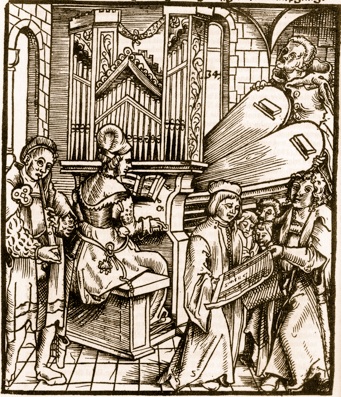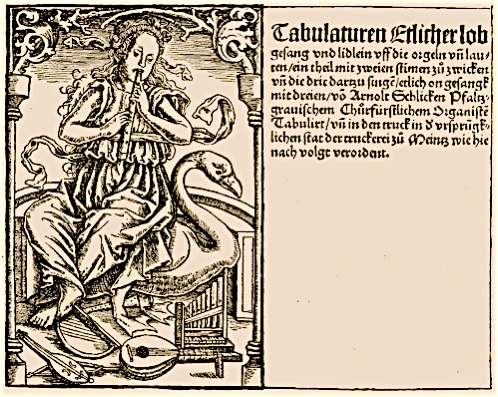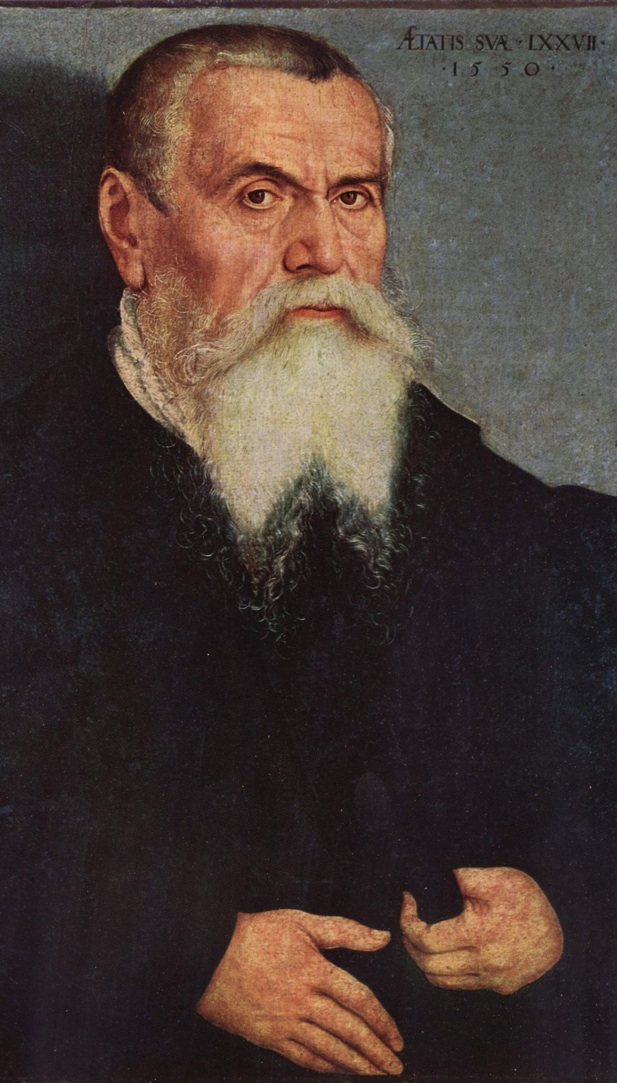Arnolt Schlick (c1460 - after 1521) was a German organist. He is known to have played at the installation of Archduke Maximilian at Frankfurt in 1486, and went to the Netherlands in 1490-1491, probably to escape from the plague which was then ravaging the Heidelberg area. In the 1490s he visited Strasbourg and Worms, and in the next decade was in considerable demand as an organ consultant. After 1516 he was an organist for the Electoral court in Frankfurt and the Saxon Elector's court in Torgau. He may have played at Charles V's coronation in Aachen in 1520, though his writing about the event is ambiguous. The last reference to Schlick is in 1521 in Hagenau, where he apparently examined a newly-built organ; after this he disappears from history.
Works
Schlick is best known for his publication of the book Spiegel der Orgelmacher und Organisten in 1511, the first treatise on building and playing organs written in German. It contains ten chapters, and covers topics such as size and shape of pipes, construction of bellows, wind production, and metallurgy; in addition he covers tuning, and gives advice on how best to position the instrument in the building.
Schlick's compositions include works for organ, lute, and some songs for four voices, as well as some mass settings which have been lost. Some of the music, especially the five-part setting of the Salve Regina, is far ahead of its time, suggesting the work of later contrapuntists such as Sweelinck. In a few of his organ compositions he wrote extraordinarily elaborate pedal parts, of a complexity which would not appear again until the seventeenth century.
Schlick was of the utmost importance in the early history of organ music in Germany. He was a much sought-after organ consultant, and while his blindness prevented him from doing much of the construction he was closely associated with organ-builders as an advisor; he tested new organs, performed widely, and was a strong influence among other composers at the time. His method of weaving contrapuntal lines around a cantus firmus, derived from a chorale tune, can be seen as foreshadowing the development of the chorale prelude in a later age. Schlick can be seen as the first figure in a long line of development which culminated in the music of J.S. Bach more than two hundred years later.




